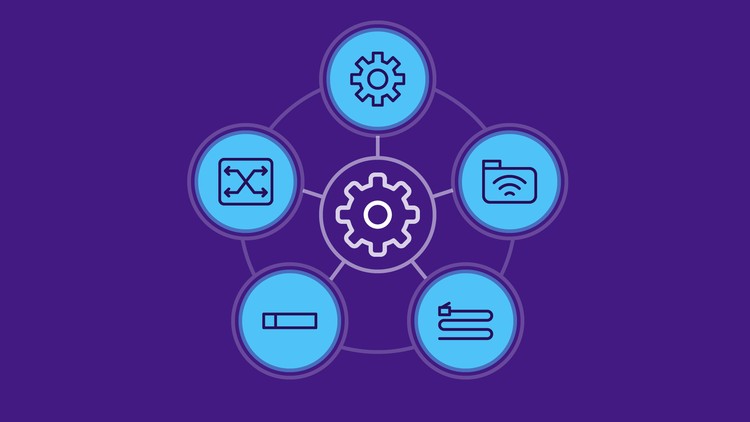Course overview
- Provider
- Udemy
- Course type
- Paid course
- Level
- Intermediate
- Duration
- 5 hours
- Lessons
- 52 lessons
- Certificate
- Available on completion
- Course author
- Packt Publishing
-
- Decompose and refactor monolithic applications into microservices
- Monitor, test, secure, and integrate microservices with each other and existing monoliths
- Use MicroProfile and Payara Micro to build independent REST services
- Dockerize the microservices in preparation for cloud deployment
- Deploy containers on Microsoft’s platform Azure
- Configure both AWS and Azure clouds for high availability
Description
Java EE application model represents one of the best available design models on which to base the design of your enterprise application.
This 2-in-1 training course will address the problems that Java EE developers have been facing for years – breaking the monolith! By the end of this training program, you’ll learn how to build microservices in Java EE 8, enabling you to create highly extendable, scalable, fault tolerant applications that are cloud-ready.
Contents and Overview
This training program includes 2 complete courses, carefully chosen to give you the most comprehensive training possible.
The first course, Java EE 8 Microservices, begins with an introduction to microservices, you’ll learn how to start setting up your development environment and toolset. Use tools such as Dropwizard, Payara Micro, and Spring Boot while you build RESTful services with the latest JAX-RS 2.1 standard. Understand how to use Microprofile to optimize Java EE for microservices development. You’ll learn how to break down and refactor monolithic applications into microservices, as well as integrate both architectures in a fail-proof way. Integrate tools such as Docker with Java EE to give you a foundation to build Cloud Native applications. Finally, you’ll find out how to integrate Spring into your development environment and how to apply the best design patterns to build robust microservices.
The second course, Building and Deploying Java EE Microservices on the Cloud, shows how to build microservices in Java EE using REST APIs in an event driven approach and you’ll build the web layer. You’ll learn to build microservices in Java EE using microprofile and the Payara Micro server. Next, you’ll learn about interacting data services and building web views with JSF, after which we will take a look at application security and performance. From there, we’ll move on to focusing on continuous integration and continuous delivery, and you’ll also learn how to Dockerize your services. Finally, you’ll learn how to deploy the application on the AWS and Azure platforms.
By the end of this training program, you will be confident with the tools and techniques that will help you build robust and resilient cloud native applications in Java EE.
About the Authors
Tilen Faganel is the main developer of the frame KumuluzEE, and he received the Java Duke's Choice Award Winner 2015. He is head of development of integration solutions in high-tech start-ups Sunesis, and has worked on numerous projects developing advanced cloud applications for enterprises in Slovenia and abroad. This is also represented at national and international conferences.
Vasilis Souvatzis is a passionate Java developer focusing on the enterprise world. His university thesis was a Java EE 7 full-stack e-commerce application. He participated in the first NetBeans Day Greece in Athens 2005, where he spoke about his Java EE 7 journey. Loyal NetBeans fan and user, took part in the last NetCAT testing the Java Editor and Glassfish integrations. Interested in new software development trends, making his steps into cloud technologies with a battle-hardened platform proving that Java EE fits the cloud just fine.
Similar courses

-
56 hours
-
356 lessonsCertificate

-
81 hours
-
401 lessonsCertificate


